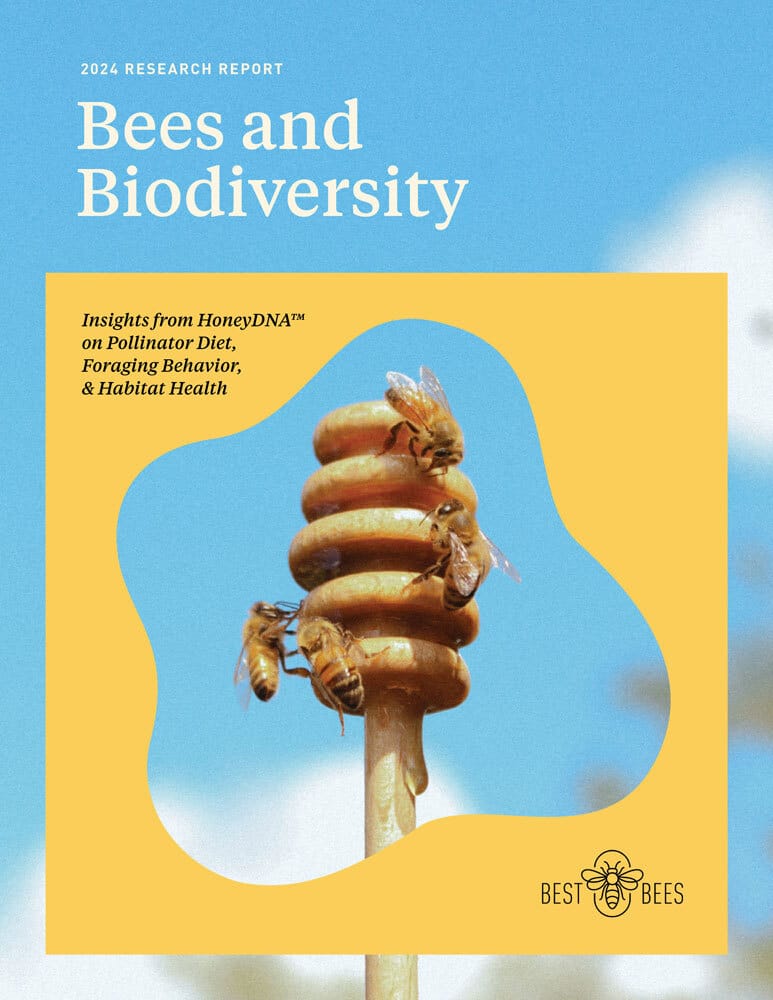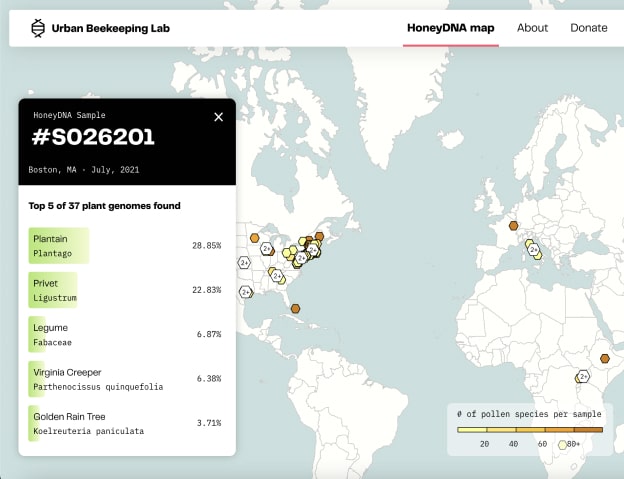Research
The Best Bees Company is dedicated to protecting pollinator health through data driven solutions.
Research
The Best Bees Company is dedicated to protecting pollinator health through data driven solutions.
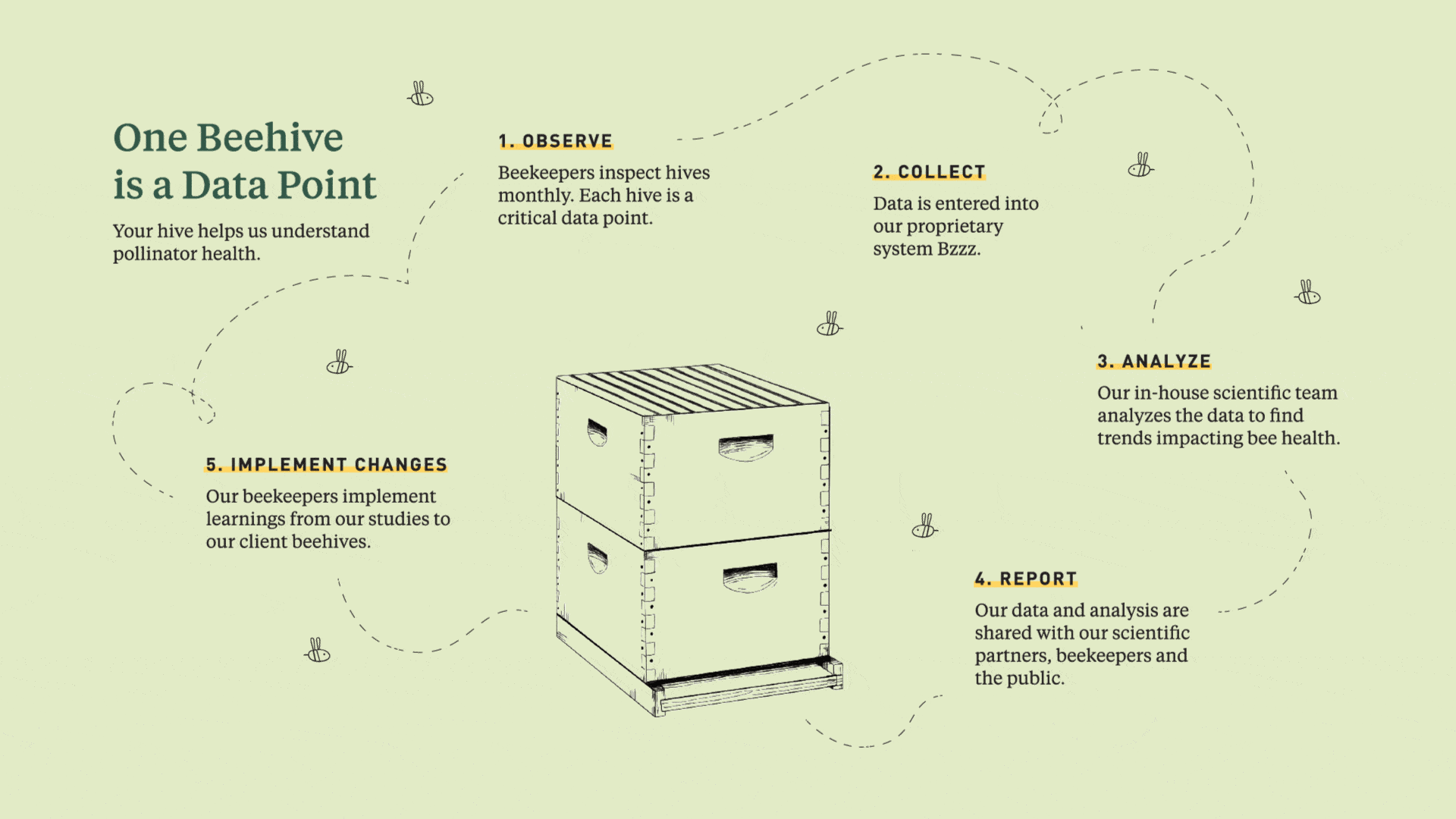
One Beehive is a Data Point
Your hive helps us understand pollinator health
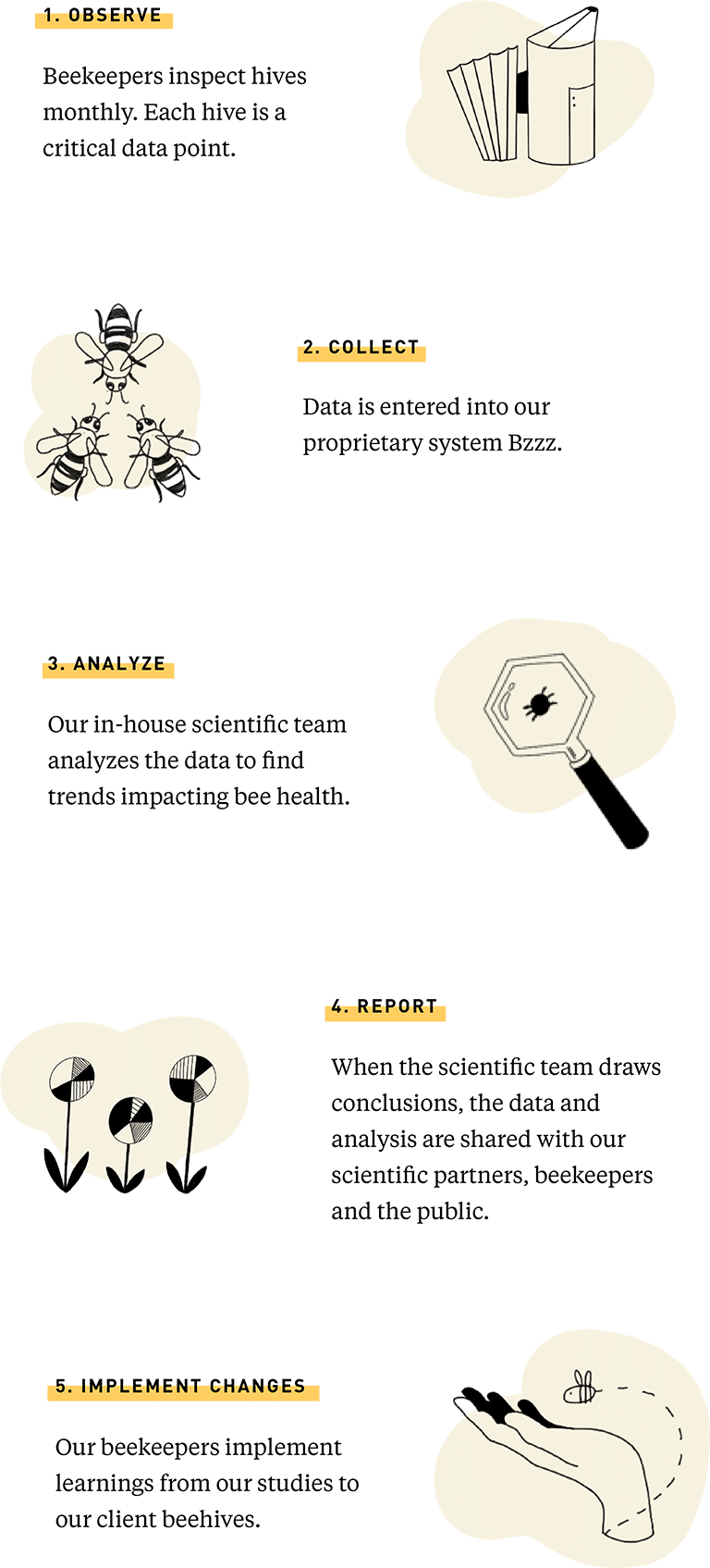
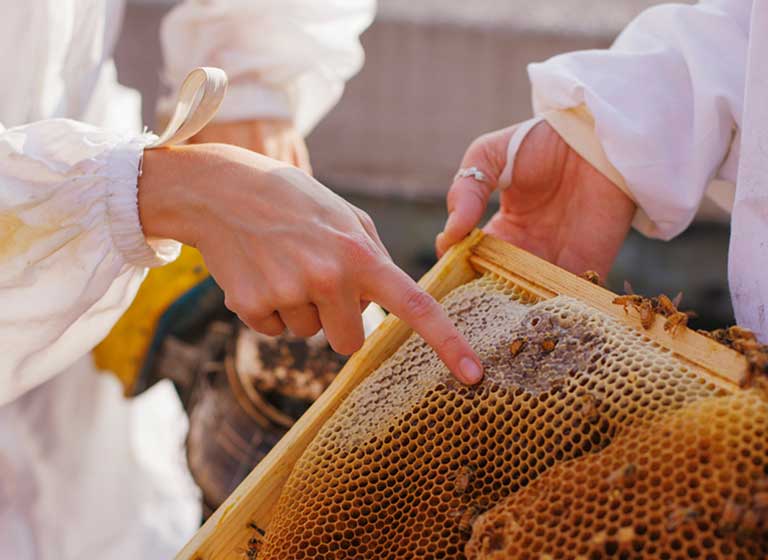
Data-Driven Innovation
PROPRIETARY Technology
We created Bzzz, a proprietary hive management system, to ensure the health of each beehive was recorded and ready for research.
Biodiversity Mapping
Using our invention of HoneyDNA – genomic sequencing of the pollen in honey to reveal the bees' floral resources – we can assess and analyze the biodiversity of local ecosystems.
Queen Rearing
We are selectively breeding hardier queen bees, and through them, colonies that can survive under the many different conditions found in cities, suburbs and rural areas across the nation.
Research Partners
We share our data with the scientific community. Collectively, it’s used to understand trends, analyze what’s working and what isn’t, and create a barometer of environmental stability.
Best Bees does not receive donations, funding, or payment of any kind from our research partners.












Our Research Team

Noah
Chief Scientific
Officer, Ph.D
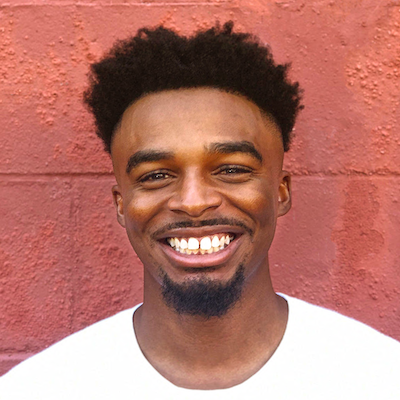
Ronnie
Data Analyst

Dylan
Data Analyst
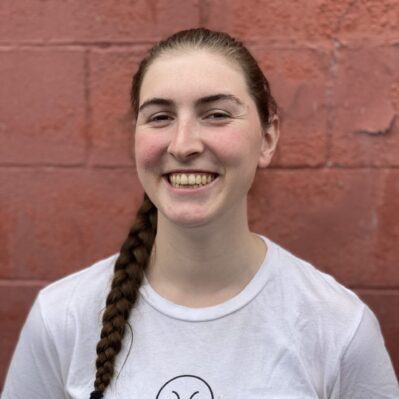
Bridgette
Field Researcher
Research in Action
Latest updates from our scientific team.
Graft 2 is officially underway. Today, we introduced 30 larvae into queen cups—a slight increase from the previous round as we scale our operations alongside the growth of our mating yard.
Both the cell raiser and mother colony were in excellent condition, with strong populations and ample resources. We marked the mother queen with a purple dot to distinguish her for future data tracking and ensure her lineage is documented in our ongoing research.
After grafting, we transported ten queenless splits and our Graft 1 queen cells to the mating yard, along with supplemental feed. The yard is set up with six-frame wooden nucs, each painted with distinct shapes and colors. This design supports queen orientation—studies have shown bees can differentiate between patterns and colors, helping them return to the correct hive after mating flights.
Upon arrival, we encountered an unexpected visitor—a coyote near the apiary. While startling, these animals typically avoid interacting with the colonies. Once the site was clear, we set up the nucs, distributed the Graft 1 cells, and provided liquid feed. If all goes well, we’ll begin to see new mated queens emerging within the next 10 days. Once laying is confirmed, we’ll allow each queen time to establish her QMP (Queen Mandibular Pheromone) and stabilize her colony.G
Bees and Biodiversity: Insights from HoneyDNA™ on Pollinator Diet, Foraging Behavior, and Habitat Health
Latest Research from The Best Bees Company — October 2024
Data from HoneyDNA™ can be leveraged to inform landscaping and planting strategies, helping individuals, property managers, and corporations protect and improve the health of their local environment — and thus, improve pollinator health.
With nearly a decade’s worth of data from client beehives at our fingertips, our team of in-house experts embarked on a multi-year study to understand just how powerful HoneyDNA™ could be as a biomonitoring tool — the findings might surprise you.
Our Scientific Approach to Studying Bees
honey bees as indicators
Our primary contribution to native pollinators is through the collection of data on bees and the scientific study of bee health.
genomic analysis
We pioneered HoneyDNA, the process of identifying the exact percentage of various pollen species found in honey through advanced genomic sequencing.
urban bee lab
In 2014, we launched the Urban Beekeeping Laboratory & Bee Sanctuary as an official 501(c)3. This non-profit organization conducts studies to improve the health of pollinators worldwide.
Published Research
Our CEO and Chief Scientific Officer, Noah Wilson-Rich, founded Best Bees as a way to continue his Ph.D. research on honey bee immunology. We stay true to those research roots, and prioritize sharing our learnings with our scientific, beekeeping, and global communities. More data creates more education, and more education leads to greater impact.
Additional Resources



Our Services
Corporate Beekeeping
Beekeeping services for your business.
Residential Beekeeping
Beekeeping services for your home.


